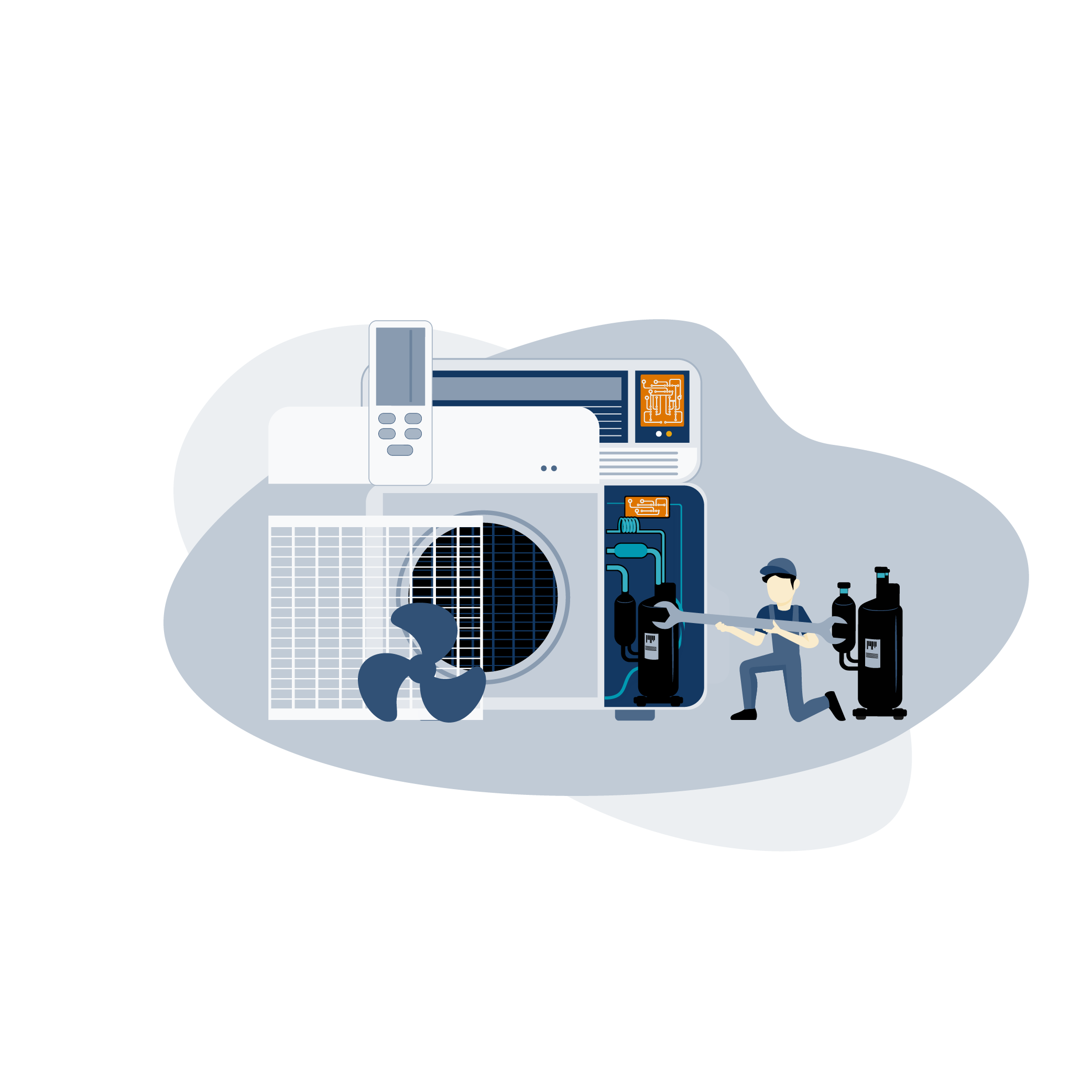Effective Hvac Maintenance &Troubleshooting
Effective Hvac Maintenance &Troubleshooting
- 2024-01-31
- 8:0
- In person/online
Course description
Heating, ventilation and air conditioning (HVAC) is an advanced technique ensuring vehicular and indoor environmental comfort. HVAC systems are designed to provide thermal comfort and acceptable indoor air quality. HVAC is an important consideration in residential as well as industrial and official structures. The heating system generates heat for the building, the ventilator changes or replaces the air in a given space to control temperature and remove moisture, odour, smoke, etc., while the air conditioner provides cooling and humidity control. Efficient HVAC systems have several benefits, including lower electricity bills, better temperature variability, cleaner air, remote access, etc. However, these systems could pose issues because of various reasons, including lack of maintenance, dirty/clogged filters, leaking refrigerant, thermostat malfunctions, dirty coils, outdated designs, etc. This course will empower you with complete information and knowledge about HVAC systems, including their operation, inspection, maintenance and repair. The course content is aimed to provide all relevant information and knowledge to effectively work with or oversee the working of HVAC systems. Undertaking this course will not only provide you with the required knowledge but also the necessary experience and confidence to effectively carry out responsibilities related to installation, functioning, maintenance and repair of HVAC systems.
Course objectives
At the end of the program, participants will be able to:- At the end of this course, participants will be able to:
- • identify how quality and productivity drive value for key stakeholders
- • Define productivity and the various types of organisational waste
- • Identify areas of poor productivity due to poor quality and suggest ways to increase effectiveness and efficiency
- • Justify and apply quality improvement tools and techniques to improve productivity
- • Apply several cost reduction strategies to meet changing global, statutory and market conditions
- • Recognise and apply measuring initiatives and set targets to improve productivity
- • The Heating, Ventilation and Air Conditioning (HVAC) Systems Certification course covers the following topics for understanding HVAC systems
Day one: Overview of HVAC Systems:
- • Definition
- • Heating
- • Generation
- • Distribution
- • Dangers
- • Ventilation
- • Mechanical or forced ventilation
- • Natural ventilation
- • Air conditioning
- • Refrigeration cycle
- • Free cooling
- • Dehumidification
Day two: Types of HVAC Systems:
- • Split systems
- • Hybrid systems
- • Duct-free systems
- • Packaged heating and air systems
Day three: Components of an HVAC System:
- •Heat exchanger
- • Blower motor
- • Combustion chamber
- • Condenser coil or compressor
- • Evaporator coil
- • Thermostat
Day four: Benefits of Installing HVAC Systems:
- • Lower electricity bills
- • Better temperature variability
- • Cleaner air
- • Remote access
Day five: Symptoms of HVAC System Issues:
- • Odours or poor indoor air quality
- • Strange, unfamiliar sounds
- • Inconsistent airflow/uneven heating and cooling
- • Loss of system efficiency
- • Unexpected rise in heating and cooling costs
Day six: Causes of HVAC System Issues:
- • Lack of maintenance
- • Dirty or clogged filters
- • Leaking refrigerant
- • Thermostat malfunctions
- • Improvement air balance
- • Sluggish fan
- • Dirty coils
- • Outdated design
Day Seven:Aspects of Energy Efficiency:
- • Heating energy
- • Ground source heat pump
- • Ventilation energy recovery
- • Air conditioning energy
Day eight: Maintenance Checklist for HVAC Systems:
- • Cleaning or replacement of filters
- • Cleaning of evaporator and condenser coils
- • Cleaning of drain lines
- • Clearing of drain pans
- • Replacement of worn pulleys and belts
- • Inspection of ducts for moulds, dust, debris
- • Observation of humidity levels



